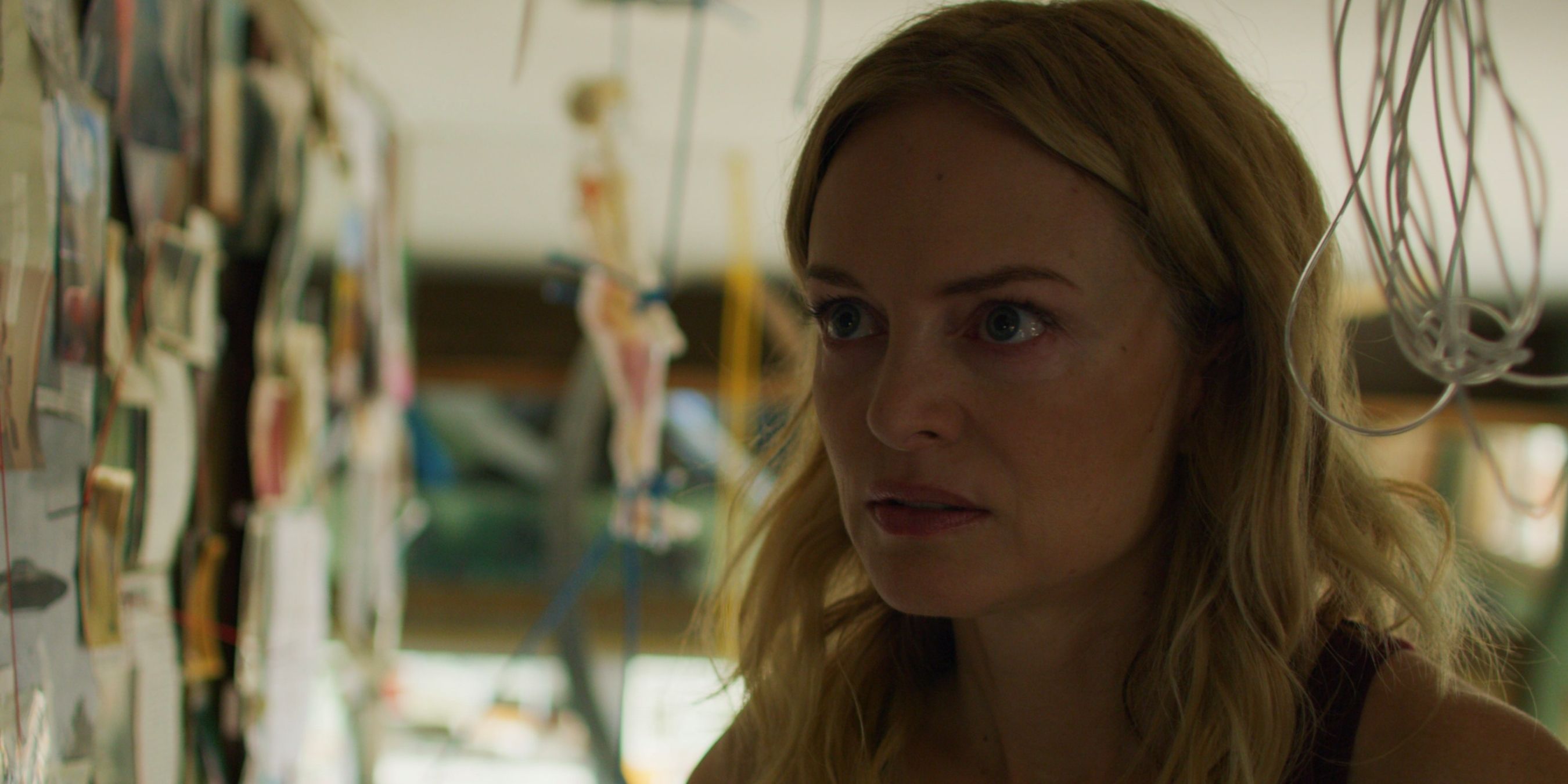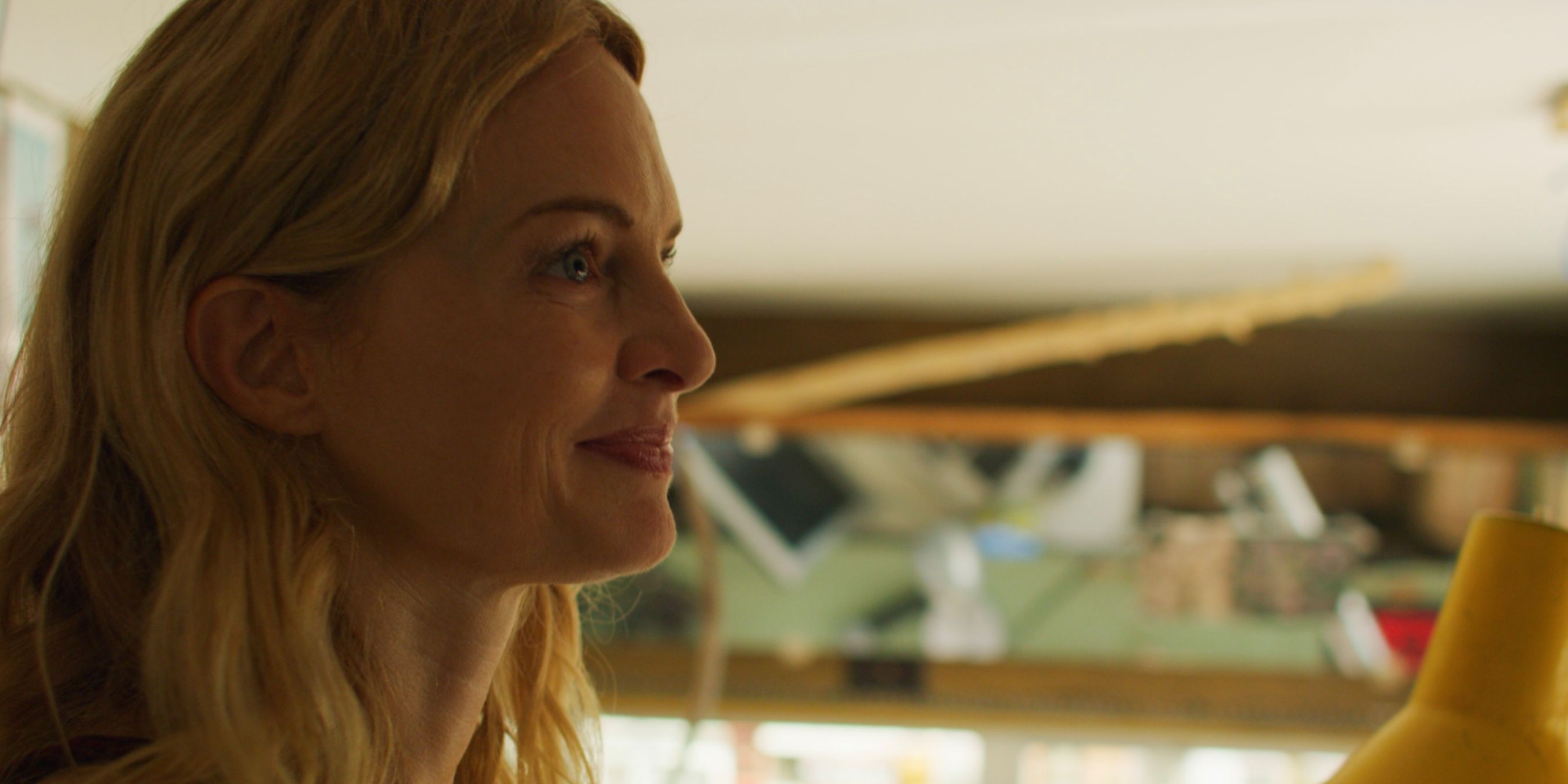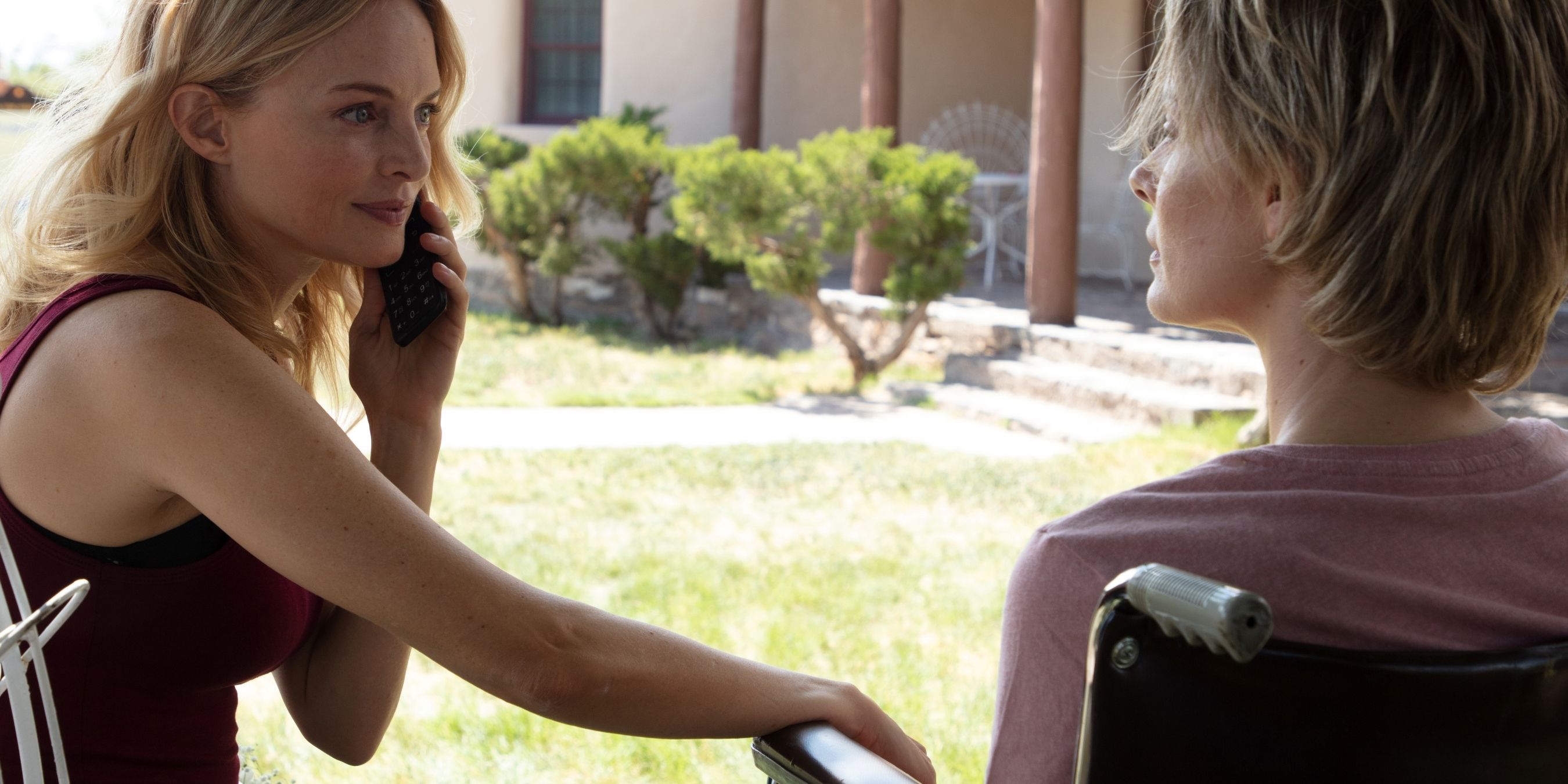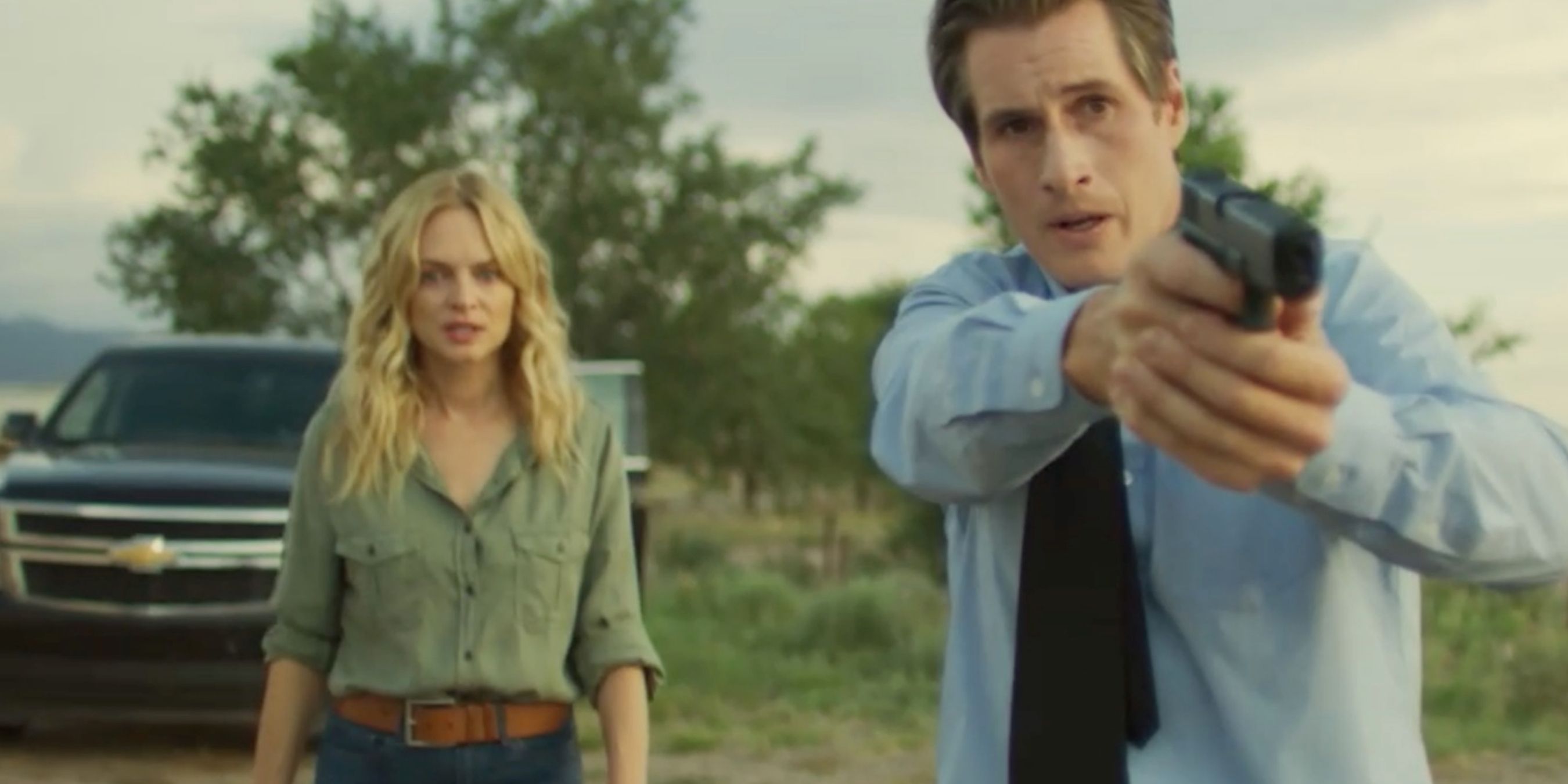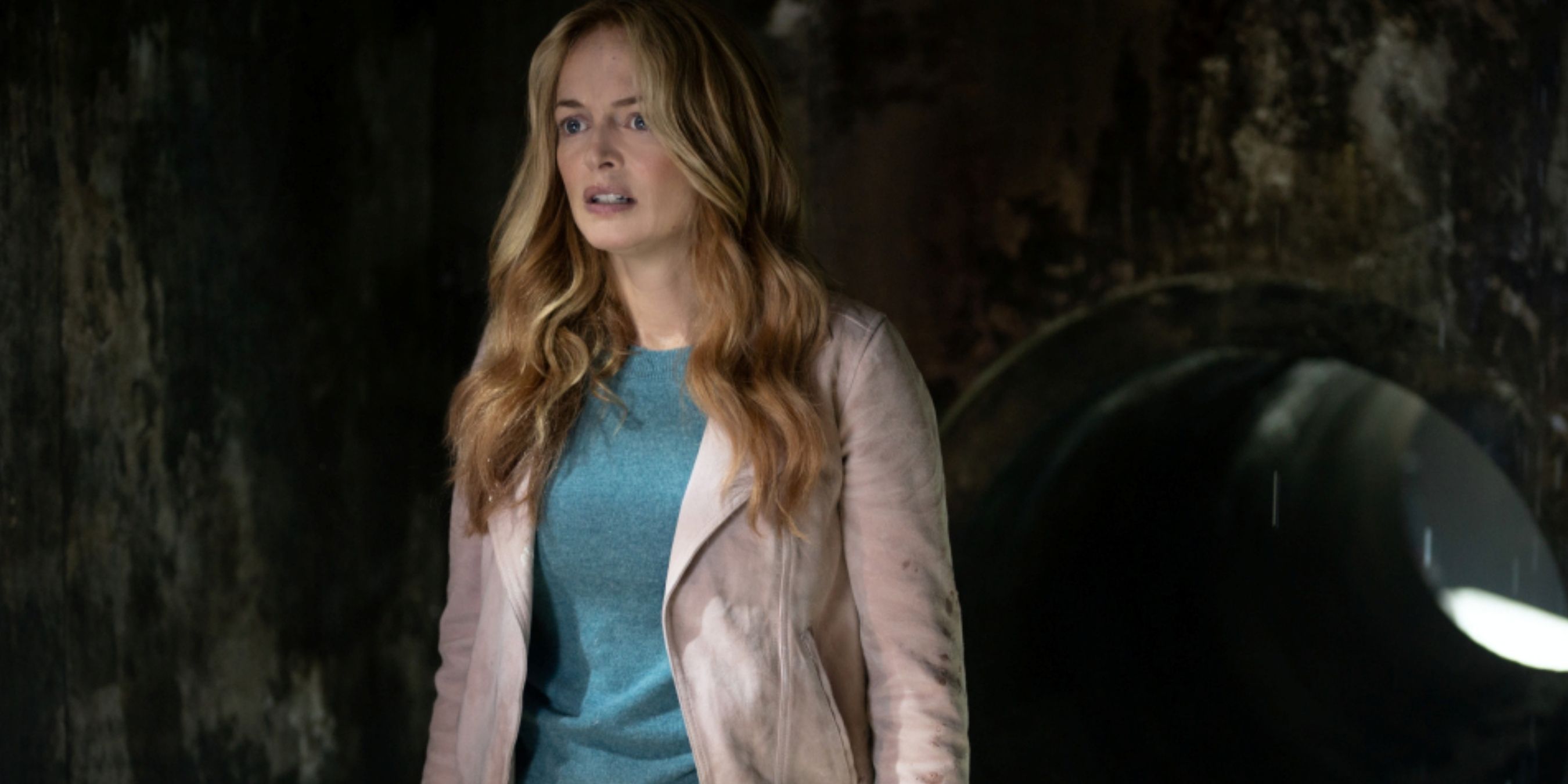From director April Mullen and writer Tim Doiron, the conspiracy thriller Wander follows Arthur Bretnik (Aaron Eckhart), a private investigator whose own paranoia starts to get the better of him when he’s hired to look into a suspicious death in a small town. As he spirals, it becomes harder to tell conspiracy from truth, as his own grief threatens to consume him.
During this 1-on-1 phone interview with Collider, actress Heather Graham talked about why she was drawn to the project, her approach to building a backstory and creating memories for her character, and what she liked about working with filmmaker April Mullen. She also talked about what she’ll be directing next, developing a TV series that she’ll be pitching, what enticed her to sign onto the CBS All Access series The Stand, what she remembers about making Boogie Nights, working with a young Will Smith on Six Degrees of Separation, and her time on Twin Peaks.
Collider: The story in Wander is interesting because it’s really told by the most unreliable of unreliable narrators. When you first read this script, what was your initial reaction to the story? What was it like to turn the pages and discover what this would be?
HEATHER GRAHAM: I thought it was smart. I liked the idea of a conspiracy theory movie. I definitely have some friends that are super into conspiracy theories, and I also find them interesting. You read through the script, and when you get to the end, you go, “Wow.” I honestly had to go back and read it again, to make sure that I was understanding it. I like that you question everyone in the story. You could question every character and go, “Is this person good or are they bad?” It’s all about, “What do you believe?” It is confusing, in today’s world, to sometimes know what to believe.
You’ve previously talked about how you had started working with an acting coach. What made you decide to do that?
GRAHAM: I’ve worked with other acting coaches, but I just wanted to deepen my experience. I started working with this woman. Her name Warner Loughlin, and she does this really interesting thing where, even if you only have a few scenes, you make up a whole story of your life and you come up with memories. What were the formative memories you had as a kid? What were the formative memories you had as a teenager? What were the formative memories you had as a young adult? You create a whole relationship with every person that [your character knows]. In this movie, Aaron Eckhart and I are friends, so I made up a whole story of all these memories we had together. It’s a massive amount of preparation, but when you get there, you feel so prepared. It’s really fun.
Was this the first time you had done that for a character?
GRAHAM: I’ve always done a bunch of preparation, where I would definitely think about my life and imagine it in that way, but she just has a certain method where you picture the different memories with your eyes closed and you say it out loud as it’s happening. She just has a very specific way of creating the memories. It’s fun to keep learning and growing, as an actor and an artist, and just always learning more things.
Are you also someone who’s typically good with guessing where a story will be going, or do you like to be taken on a ride?
GRAHAM: I used to be a person taken on a ride, but now that I’ve been learning how to write and I’m studying things and I watch them, it’s a lot easier to know where it’s going. There’s no scene in a movie or TV show for no reason. That scene is leading up to something. Sometimes I know what’s gonna happen because I understand how writers think now.
When you’re writing your own projects, do you find yourself trying to hide and disguise that a little bit more?
GRAHAM: Yeah. You definitely wanna surprise people and pay things off. You build something, after you develop it, and then you pay it off. Certain things are that way for a reason because it works. You deliver what you’ve built. It’s really cool because it’s like building a house.
What did you most enjoy about working with Aaron Eckhart and what he brought to the scenes that you had together?
GRAHAM: The movie starts and he’s already pretty far gone and seems pretty crazy, but I wanted to picture what our relationship was like when I first met him and he was a cop and we would solve cases together. I was a D.A. and we would prosecute people, and he was this very capable, intelligent person who I pictured to be like a brother. I have a friend that’s like my brother, so I pictured it as similar to that. I just made up all of these memories of when he met his wife, and that I became really good friends with his wife and went to their wedding. And then, I just watched this person fall apart, who I saw at the top of their game. It was just having a memory of what he used to be, and then looking at what he is today.
How did you find the experience of working with April Mullen? What did you like about her as a director and the atmosphere that she created on this set?
GRAHAM: It’s really cool to work with a female director. Because I directed my own movie, I just really love women writing and directing, and I wanna support that happening, in any way that I can. April is really lovely. She’s such a nurturing person. She brought her dog on the set and the dog actually played Aaron’s dog. She has this really great dog. She’s very cool. I think visually she had cool ideas. She’s got an amazing personality. She was always incredibly respectful and sensitive.
I really enjoyed Half Magic and am anxiously waiting to see what you might direct next.
GRAHAM: What’s cool is that the producer of Wander, Andre Relis, just optioned my next script. We’re hopefully gonna start casting it in the next few weeks, knock on wood.
What kind of film will that be?
GRAHAM: I guess I would say it’s a dramedy. Maybe there’s a little bit more drama in it, but it’s still a comedy. It’s called Chosen Family.
Has it been more or less challenging to get something into production, this time around?
GRAHAM: It’s always challenging. To get someone to give you that much money to make a movie, it definitely takes a lot of patience and some luck.
Do you feel like you learned anything about yourself, as a director, from having that first experience that you’ll now carry with you?
GRAHAM: I think it’s one of the most fulfilling things I’ve ever done in my life. It’s really rewarding to have an idea, and then to write it down and see it happen. It’s so cool. I’m just so grateful that this producer wants to make it. I’m also writing a TV series with a friend. We are gonna pitch it, but we have this really cool idea and we’re about to go pitch.
Does writing a TV series feel very different from writing a film?
GRAHAM: I guess it is different because when you write a film, there’s a three-act structure and when you write a TV show, you’re writing something open-ended and I think they have a five-act structure. I’m just learning it all. I really admire writers. I have a friend who’s a writer, and she is helping. I really think writing, in a way, is the coolest part of the whole process. Everything really just comes out of the writing.
When you’re working on developing a show, are you someone who thinks really far ahead? Have you thought about a number of seasons of the show?
GRAHAM: Yeah. I really over-prepare. I wrote this really long thing and they were like, “No, no, no. Nobody wants to hear all that.” It’s interesting because they want you to tease them with information. You know what’s gonna happen, but you’re not supposed to tell them everything.
Now that you’re writing, directing and producing, has any of that taught you things about acting that you hadn’t thought of or realized, until you were also doing stuff on the other side of the camera?
GRAHAM: Yeah. I really never sat in the editing room before, like I did with Half Magic, where I really got to sit there and see how you cut together moments to make a person’s performance, how music works, and the cinematography. It’s really interesting to know how powerful it is, what they’re doing, and how it makes a huge difference. I feel like I understand the job that everyone’s doing on set a lot better. It’s just really cool to learn more about the process.
You’re also in The Stand. What made you want to be a part of telling that story? Had you been familiar with the book, at all?
GRAHAM: I never read the book, but of course, I know who Stephen King is and he’s amazing. I read the script and I thought it was really well written, and I really liked my character. I think my character has a sense of humor in a really dark situation, which I really love. I thought it was really cool, the cast they have in that. They have so many cool actors. After doing a lot of independent movies, it was fun working on something where they just have a massive budget. They spent as much on one day as a whole movie. It’s fun working on something where they have an endless amount of money.
You’ll always be remembered for your role in Boogie Nights. What most sticks out for you about your time shooting that movie?
GRAHAM: It was really exciting to work with Paul [Thomas Anderson], in that moment, as this up-and-coming director, and all of those actors were also up-and-coming. Julianne [Moore] was more established and Burt [Reynolds], but pretty much everyone else was very new and up-and-coming. It did feel like something exciting was gonna happen with it, but of course, you never know. It was really fun to just be a part of something That was at a time when it wasn’t that easy to get work, and that really opened up a lot of doors for me.
Would you ever want to work with Paul Thomas Anderson again?
GRAHAM: Yeah. He’s so talented. For sure.
What was it like to work with a young and developing Will Smith on Six Degrees of Separation?
GRAHAM: That’s so funny. That was amazing. He’s so hard-working. I remember him drilling Donald Sutherland and asking him, “How do you prepare for a role? What do you do?” And then, Donald Sutherland would tell him, and you could just see his mind going. He wanted to learn how to act and be good, and he was asking all the questions. He’s very hard-working. He seems fun. I don’t know him very well, but he seems like he’s a very fun person with a lot of energy, who just really enjoys what he’s doing.
You were also a part of the original Twin Peaks, which is my all-time favorite TV series and always will be, and you were even in Fire Walk With Me. What do you remember about your time on that series and as a part of that world? Do you feel like you knew what was going on, or did you have to trust in the insane minds of David Lynch and Mark Frost?
GRAHAM: When I got involved with the Twin Peaks series, they were already in Season 2. I already knew what was going on because I had just been watching that show as a fan and I loved it. I was obsessed with it and I had a crush on Kyle MacLachlan’s character, so it was fun to get to play his love interest in Season 2. It was just good to be a part of that classic TV show. It was very fun to get to work with David Lynch.
What’s it like when you’re an actor and you get a job like that, where it’s something that you’re a big fan of? What is that experience like?
GRAHAM: It’s pretty funny. That first season of Twin Peaks was so good, and then you’re there and you’re a fan. I have felt that way, as an actress, throughout my career, at moments. I remember when I got my first job and I was driving onto the 20th Century Fox lot, I was pinching myself going, “Is this really happening?” I remember when I went to this film festival and I met Bono, and he wanted to talk to me. I was like, “Is this happening, that Bono wants to talk to me?” It is really fun. I still feel like a fan, when I meet people. I still get all excited.
Do you feel like you had closure with your Twin Peaks character, or do you feel like you never really fully got answers for what happened to her?
GRAHAM: I feel sad that she didn’t survive in the story. You always want your characters to not have something terrible happened to them. I wish something better had happened to her.
The first thing that I saw you in was License to Drive. What do you think that younger version of you would think of the career that you’ve had and the journey that you’ve taken in this business, since doing that movie?
GRAHAM: On one hand, I’m so lucky. I’ve been dealt a really lucky hand. On the other hand, of course, I still feel like I haven’t fully achieved my full potential of what I feel I can do. I still feel that I have a lot to give that I haven’t gotten to do yet. So, I hope that I get to really say what I wanna say and play more different and interesting roles. I still feel like I have a lot to do.
Early on in your career, what was your idea of success? What did having success in this business mean to you then?
GRAHAM: When I was really young, I just really wanted to be in Sophie’s Choice. I wanted to do a really dark movie that was really good. And then, as I got older, I became a huge fan of comedy. As a young person, I wasn’t super into comedy, but now I absolutely love comedy and I really admire comedians. I’m a huge nerdy fan, especially of female stand-ups. I feel like they’re really breaking the mold with a female point of view. I think that’s so refreshing and exciting. I really seek out any kind of female comedy. I love it
Since you are still a fan yourself, if you could play a character in one of your favorite TV shows, even something that’s not currently on the air, who would you to play and what would you want to do in that world?
GRAHAM: I would really wanna be in Breaking Bad. I would wanna play Aaron Paul’s character in Breaking Bad. That would be so fun.
Wander is in theaters, on-demand and digital.

